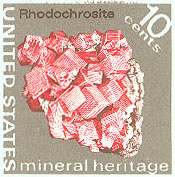 | History of Geology |

Born: 1763, Ayr, Scotland.
Died: 1840, Mexico.
| Abstract | Introduction |
| Major works | Later life |
| Historical assessment | Related websites |
 | History of Geology |

Born: 1763, Ayr, Scotland.
Died: 1840, Mexico.
| Abstract | Introduction |
| Major works | Later life |
| Historical assessment | Related websites |
Maclure had a rural, agricultural view of American development which caused him to oppose building of the Erie Canal. He attempted, first in Spain and later at New Harmony, Indiana, to establish an agricultural school. His efforts met with failure, and disillusioned, he eventually moved to Mexico, where he died. Besides his map and two editions of Observations, he wrote a great many other geologic works on such subjects as: West Indian, European, and Mexican geology; economic and igneous geology; and Wernerian stratigraphy.
Maclure received a rare color copy of Volney's geological map of the eastern United States, and he became fascinated with making a geological map of the whole country. Such a map, he thought, would be the basis for evaluating economic potential—minerals, agriculture, and transportation. Maclure undertook many journeys through the United States. He concentrated on crossing and recrossing all portions of the Appalachian Mountains.
Maclures's classification of strata followed Werner's scheme—see time scales. The only difference was omission of volcanic rocks in the 1809 map.
Maclure had a rural, agricultural view of America. He failed to realize the urban and industrial potential already beginning to develop. He believed the vast interior would become a great agricultural region supporting a largely agarian society. In these views, he was not alone for the early 19th century. He thought the continental interior would be safe from warfare; whereas, the coastal region would be constantly at war with foreign powers. His prediction for the interior was correct, but the coastal region suffered only one war—the War of 1812 with Great Britain. He opposed building the Erie Canal, because of his rural outlook, yet his geological reports suggested mineral wealth (coal and salt) in western New York.Introduction and early life
Maclure is known as the "Father of American geology" and the "William Smith of America." These titles are based on his geological map of the United States, the first colored geological map of the country. He was born in Scotland and first came to the U.S. at age 19 to seek commercial employment. He returned to London, where he became a successful businessman. He accumulated a fortune and retired after a few years to a life of travel. He ventured widely in continental Europe and the British Isles. In 1796 he took steps to become a naturalized U.S. citizen.Major works
Maclure's map was published first in 1809, accompanied by Observations on the geology of the United States in the Transactions of the American Philosophical Society. The colored map was rather crude, even by contemporary standards. Nonetheless, it was widely distributed and frequently reprinted. It became the first generally available geological map of the United States, and thus had strong influence on subsequent American geology. It is symbolic of the beginning of American geology.
A revised map and expanded Observations were published in 1817. The only notable geologic change was in regard to the volcanic class. Basalt was conceded as volcanic, and granite also was considered volcanic in origin. The "Neptunian" rocks were, thus, reduced but not completely eliminated. Besides his maps and two editions of Observations, Maclure published several other works on West Indies, European and Mexican geology, as well as economic and igneous geology, and stratigraphy (Wernerian system).
Return to history of geology syllabus or schedule.Historical assessment
Maclure adhered to the Wernerian system, which placed severe limits on his understanding of geology. He paid little attention to fossils, which he did not use for stratigraphy. Thus, he did not recognize the relationship between Paleozoic strata of the Appalachian Mountains and Appalachian Plateau regions. He cannot be regarded as a great stratigrapher, such as William Smith of England. Maclure was, in fact, at least a decade or more behind in terms of geological concepts in Europe. Nonetheless, his map and report were the first widely circulated account of geology in the United States. On that basis rests his claim as the "father of American geology." He also had quite progressive plans for agricultural education. In spite of much effort, however, he did not succeed in putting his ideas into practice. Nonetheless, he influenced many contemporaries and he played a significant role in development of American geology through his activities. Related website
Related website
References

© J.S. Aber (2020).